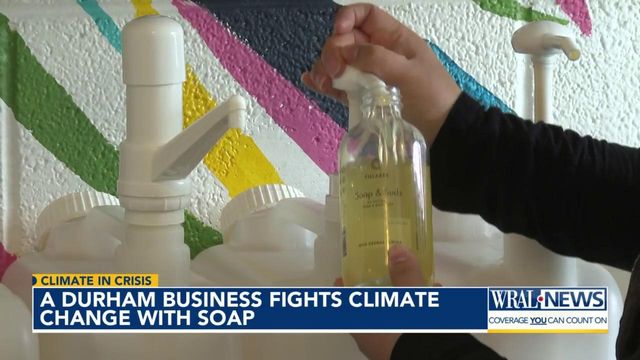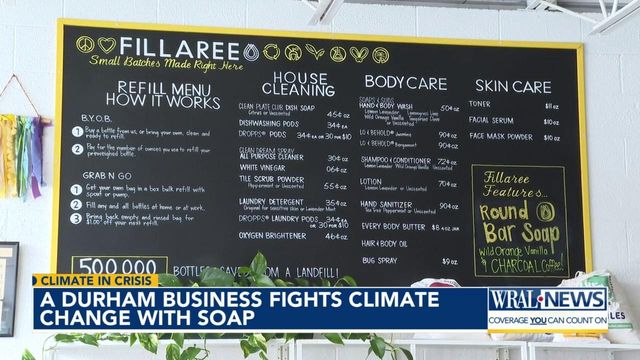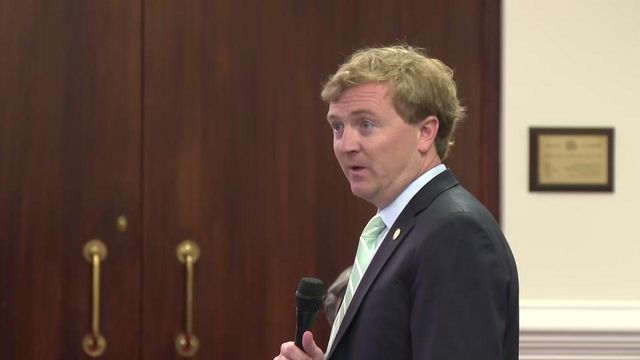Refill, reuse: Durham business fights climate change with soap
Just take a look around your bathroom, and you'll likely see a collection of plastic containers housing shampoo, hand soap and other products that often list water as the first ingredient.
The cycle of purchasing bulky plastic bottles over and over again produces greenhouse gases for repeated manufacture and disposal.
Humans across the globe are creating more plastic than ever before -- with an average of 122 pounds per person each year -- and only about five percent of that plastic is recycled, according to the Department of Energy.
"If we're going to solve the climate problem, we really need to look at the stuff that we are consuming," said Caroline DeLoach, a sustainability director with Atlantic Packaging.
That's why Alyssa Cherry started Fillaree, a business in Durham that creates natural soap, shampoo and cleaners in glass bottles that customers can refill in store.
"We want to make it really easy for people to be able to reuse and refill their household products," Cherry said.
Her company makes more than 350 gallons of natural soap each week sold in her Durham storefront and other retailers including Durham CoOp and Weaver Street Market. Customers can also purchase bulk refills online with a free shipping label to send back the refill container to be sanitized and reused.
"We're trying to make it easy to be able to reuse the container in a circular way as opposed to trying to find something to do with it at its end life," Cherry said.
The circular or closed loop business model can extend the life cycle of products and cut down on plastic waste, a topic that was the focus of a recent panel at UNC featuring Cherry and DeLoach.
"Ultimately, working towards circularity in anything, whether it's packaging or anything else, is is a climate change issue because of the embodied emissions associated in making any given material," DeLoach said.
Cherry says Fillaree prevented 300,000 plastic bottles from going to the landfill over the past year.
Diversion is a focus for Triangle waste management officials, as both the Cary and Wake landfills are expected to be full by 2040.











